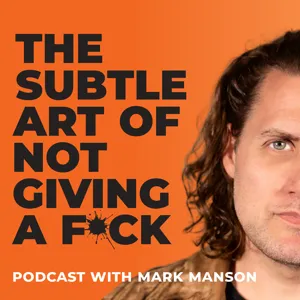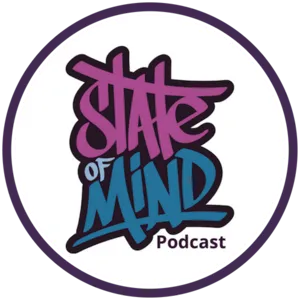Podcast Summary
The pitfalls of self-improvement: Self-improvement can feel counterproductive when ego gets in the way. Focus on the process, accept fallibility, and approach growth with a mindset of learning.
The pursuit of self-improvement can sometimes backfire and make us feel worse, particularly when it comes to social or emotional issues. This can be due to our ego getting in the way and preventing us from acknowledging our flaws or shortcomings. It's important to remember that personal growth requires vulnerability and acceptance of our fallibility. Instead of seeing self-improvement as an admission of personal inadequacy, we should view it as an opportunity to learn and grow. By focusing on the process rather than the outcome, we can reduce the pressure and allow ourselves to make progress. So, if you're feeling stuck or discouraged in your self-improvement journey, take a step back, reassess your motivations, and approach the process with a growth mindset. Remember, it's okay to not have it all figured out and to make mistakes along the way.
Understanding the journey of social skill development: Developing social skills involves a balance of self-awareness and being present, with deliberate practice and experimentation. Remember, it's a journey and everyone starts at different places.
Improving social skills and overcoming social anxiety involves a balance between self-awareness and not being overly self-conscious. While there is a social stigma attached to trying to improve these areas of life, it's important not to let that stop you. In fact, sometimes the best way to improve is to stop trying so hard and focus on being present in the moment. However, there is also a time and place for deliberate practice and experimentation. The process of going from bad to okay and okay to great often involves a period of discomfort and trying new things, which can come across as try-hard. But with the right attitude and self-awareness, this painful process can lead to valuable learning and growth. Remember, it's important to understand that developing social skills is a journey, and everyone starts at different places on the 2x2 grid of skill development. Don't be too hard on yourself, and don't let the fear of being try-hard hold you back from making progress.
The try-hard phase for emotional growth: Despite discomfort, pushing through the try-hard phase for emotional growth is crucial for personal development, despite societal stigma and potential discomfort for others.
Being "try hard" in improving social and emotional skills is often necessary, but can be met with harsher judgment due to the emotional nature of these areas of growth. People tend to be more critical when things make them feel uncomfortable or exposed, leading to a stigma around trying hard in these areas. For instance, attempting to sell products or building physical fitness often faces less judgment compared to working on emotional insecurities. The emotional discomfort that comes with insecurity can make others feel uncomfortable and potentially highlight their own insecurities. This is why insecure individuals often attract each other, creating unhealthy relationships. It's essential to recognize the importance of pushing through the try-hard phase and focusing on personal growth, even if it feels uncomfortable at times.
Embrace imperfection and strive for growth: Recognize the importance of self-acceptance and self-improvement, avoid constant self-criticism, and find balance for continued growth
Finding balance between self-acceptance and self-improvement is crucial for personal growth. While it's important to acknowledge areas for improvement, constant self-criticism can be damaging. Reflecting on past experiences and recognizing instances where self-judgment wasn't necessary can help find this balance. The Zen paradox "you are perfect as you are, and you can always be better" highlights the importance of embracing imperfection while striving for growth. Ignoring the need for improvement can lead to complacency and narcissism, while solely focusing on it can result in insecurity and overachievement. Finding a middle ground allows for continued growth while also accepting oneself in the present.
Balancing self-acceptance and self-improvement for personal growth: Acknowledge the need for improvement while accepting oneself, and both should be motivated by genuine self-worth rather than external validation. Forgive yourself for mistakes to find peace and growth.
Finding the balance between self-acceptance and self-improvement is crucial for personal growth and maintaining healthy self-esteem. People tend to lean towards one extreme or the other, with some being too complacent and accepting of their circumstances, while others are constantly striving for more. However, the motivation behind each approach matters. Toxic self-acceptance can stem from avoiding problems, while toxic self-improvement may result from running away from emotional issues. A healthy balance requires acknowledging the need for improvement while accepting oneself, and both should be motivated by genuine self-worth rather than external validation. The ultimate goal is to be okay with not accomplishing everything, even important things, and learning to forgive oneself for mistakes. This self-forgiveness is the final step in conquering the challenge of balancing self-acceptance and self-improvement.
The Complexity of Self-Esteem: Self-esteem is built through recognizing accomplishments and practicing self-compassion during failures, but accepting and loving ourselves during low points can be challenging. High self-esteem is important for good health, and criticisms of self-esteem boosters should be considered.
Self-esteem is a complex construct that involves both recognizing and celebrating our accomplishments, as well as practicing self-compassion during our failures. The speaker emphasizes the importance of accumulating evidence of our good deeds and successes, but also acknowledges the difficulty of accepting and loving ourselves during our low points. The conversation touches upon the criticism of the speaker's book, "The Subtle Art of Not Giving a F\*ck," where Amy Jenkins argues that high self-esteem is a critical element of good health and that the speaker's assertions about participation certificates and grade inflation being detrimental to self-esteem are flawed. The speaker acknowledges the humor and over-the-top tone in their writing, but also the importance of addressing these criticisms and considering different perspectives. Ultimately, the conversation highlights the importance of self-acceptance, self-compassion, and the recognition of our accomplishments in building and maintaining healthy self-esteem.
Measuring Self Esteem: A Complex Concept: Early assessments of self esteem were inaccurate, but recent studies suggest asking about feelings towards negative qualities is the most accurate way to measure it. High self esteem individuals acknowledge their flaws and strive for improvement, while those with low self esteem have a poor relationship with their negative aspects.
Self esteem, a concept coined by Nathaniel Branden, is a crucial aspect of an individual's relationship with themselves, significantly impacting their overall well-being and other relationships. However, measuring self esteem has been a challenge for psychologists, leading to inaccurate and surface-level assessments. Early inventories and surveys did not accurately represent the original concept, and the distinction between self esteem and narcissism became blurred. Despite these issues, self esteem remains an important concept, and recent studies have shown that asking people about their feelings towards their negative qualities is the most accurate way to measure it. High self esteem individuals acknowledge their flaws and strive for improvement, while those with low self esteem have a poor relationship with their negative aspects. The measurement and understanding of self esteem have evolved, and it continues to be a significant factor in mental health and happiness.
Self esteem's effect on life outcomes is relatively small: Self esteem contributes to personal growth, but its impact is limited and should be considered alongside other factors like self-efficacy, positive emotions, attachment security, and growth mindset.
Self esteem, while important, may have been oversold as a panacea for various societal issues in the past. Research since the late 1990s suggests that self esteem's effect sizes on various life outcomes are relatively small, around 8-10%. Additionally, self esteem gained significant attention from policymakers in the 1970s and 1980s, leading to its over-emphasis as a solution to societal issues. Self esteem should be studied and improved, but it's essential to recognize its limitations and the existence of ongoing debates within the scientific community. Furthermore, self esteem's relevance to personal growth and self-improvement lies in its role as one of several contributing factors, alongside self-efficacy, positive emotions, attachment security, and growth mindset.
Embrace imperfection for growth: Self-esteem and forgiveness are crucial for growth, acknowledging our worth and accepting imperfections leads to better personal development
Having a strong self-esteem and being forgiving of our own flaws and mistakes are essential for being open to growth and improvement. Self-esteem allows us to be more willing to take risks and learn from our mistakes, rather than being overly focused on achieving constant success. It's important to acknowledge our fundamental value to ourselves, as this can make every other pursuit easier. The paradox of self-improvement is that we are perfect as we are, yet we can always be better. Ultimately, we must learn to be okay with ourselves under both conditions. Sign up for Mark Manson's newsletter for more life tips and exercises to help you navigate this paradox. Remember to leave a review, subscribe to the podcast, and don't forget to tell him how handsome he is - his ego needs it!





